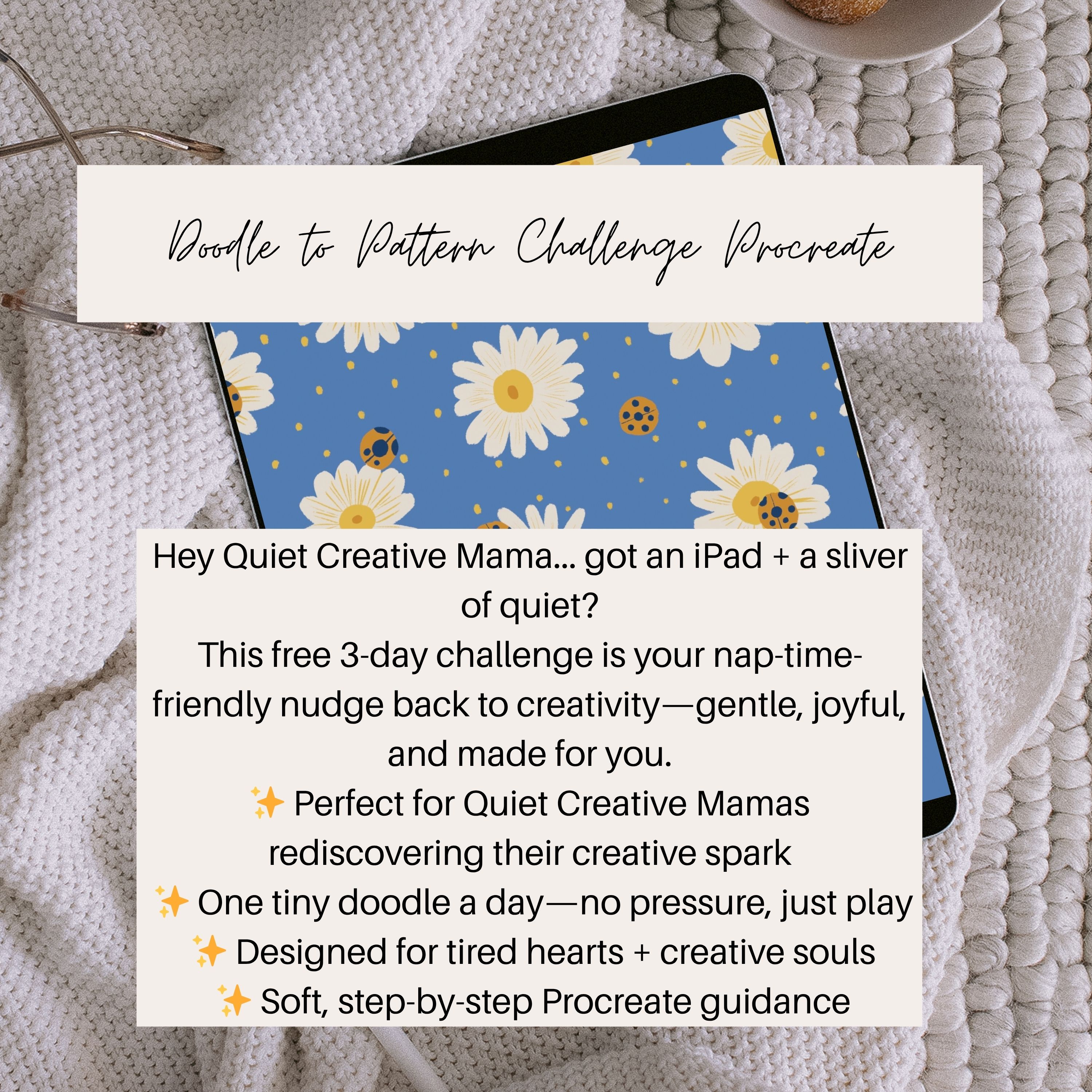3 Beginner Mistakes in Pattern Design (and What to Do Instead)
If you’ve ever made a pattern that looked more like visual chaos than creative clarity—this one’s for you.
When I first started designing patterns, I thought the only goal was to make sure it repeated. Seamlessly. That was it.
I didn’t know about balance. I didn’t understand flow. I certainly didn’t know that using every color I liked wasn’t a strategy.
But here's the truth no one tells you when you're just beginning: every “mistake” is a milestone. You’re not doing it wrong—you’re learning by doing. Let’s walk through the three most common beginner mistakes in surface design—and what to do instead.
Overcomplicating Your Motifs
“The more detailed, the better,” I thought. Spoiler: nope.
When I tried leaving my comfort zone too fast, I ended up with patterns that were so detailed, they made my eyes hurt. I wanted to prove I could make “real” art… but I overdid it.
What Happens:
Your pattern feels chaotic, not cohesive
It’s hard to balance the elements
Viewers don’t know where to look
What to Try Instead:
Start with 1–3 simple motifs
Use duplication and variation, not constant reinvention
Limit detail so your pieces can breathe
🌼 Mini Win Moment: I once duplicated a single flower 5 times, adjusted its angle and scale—and suddenly, I had a collection. Simplicity worked better than complexity ever had.
“Clarity speaks louder than complexity.”
Forgetting About Spacing
Ever test a tile and think: “Wait… why does this look so off?”
I used to pack my motifs in so tightly, they looked like they were fighting for air. Even worse, sometimes I’d unknowingly place duplicates too close together—making the repeat obvious and clunky.
What Happens:
The repeat is visible in all the wrong ways
Your pattern feels heavy or crowded
Visual rhythm gets disrupted
What to Try Instead:
Leave intentional white space—it’s not empty, it’s balance
Flip, rotate, or offset repeats for flow
Use test tiles early and often
💭 Quick Fix Tip: I started checking my pattern on a mockup (like wallpaper or fabric). That alone helped me see what needed spacing and shifting.
“White space lets your art breathe.”
Using Too Many Colors
I wanted my art to feel joyful. So I used… every color I liked. 😅
Instead of joy, it felt jarring. Nothing matched. Nothing popped. I didn’t realize the power of a limited palette until I forced myself to choose just three colors—and everything changed.
What Happens:
The palette feels muddy or clashing
It’s hard to create mood or focus
You spend more time tweaking than creating
What to Try Instead:
Choose 1 lead color, 1 accent, and 2–3 background neutrals
Pull from photos or existing palettes that reflect your style
Stick to fewer colors per collection—it builds brand recognition
🎨 Mini Win Moment: My first “aha” palette came from a walk with my toddler. I pulled five colors from one photo, and that set the tone for a whole series.
“Less color = more harmony.”
What You’ll Feel When You Make That Gentle Fix
Maybe it’s the moment your first repeat tiles just right.
Maybe it’s seeing your limited palette actually work.
Maybe it’s choosing white space over more stuff—and feeling peace instead of pressure.
These tiny shifts don’t just make your art stronger—they make you feel like a designer. Someone with vision, direction, and permission to grow gently.
Want to Practice These Fixes with Me?
That’s exactly why I created my free Seamless Pattern Course—because you don’t need to be perfect. You just need to start.
🖌️ You’ll make your first repeat pattern
🧵 You’ll learn to balance, space, and color with ease
🛋️ You’ll work in tiny, doable steps (yes—even during nap time)
👉 Ready to feel proud of your pattern? [Join the free course here]
What if your pattern didn’t need to be perfect—just peaceful?
What would you create if your “mistakes” were just part of your style taking shape?


